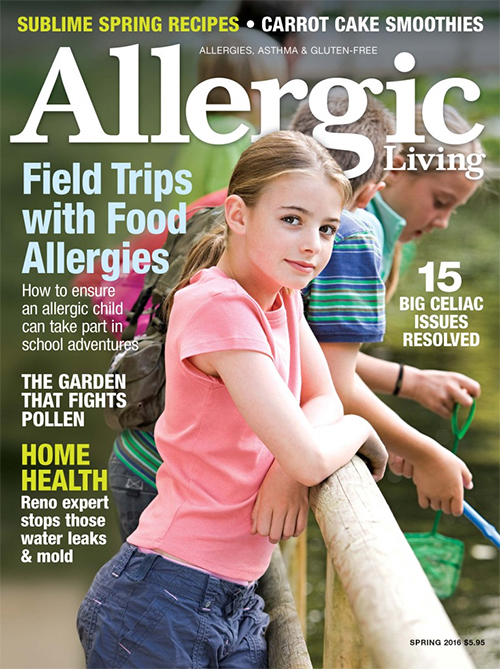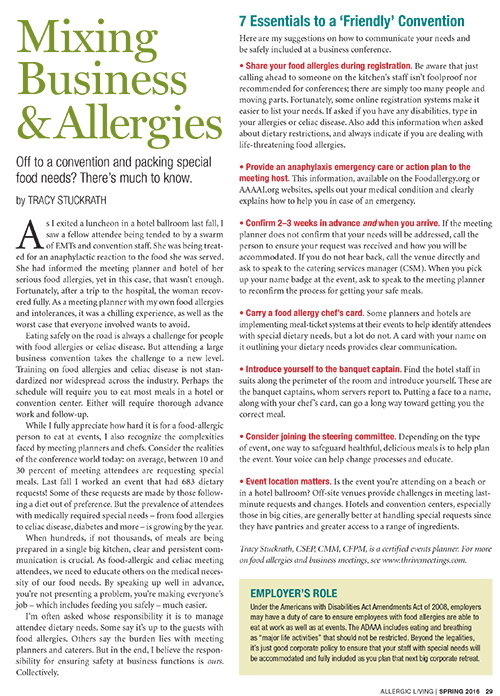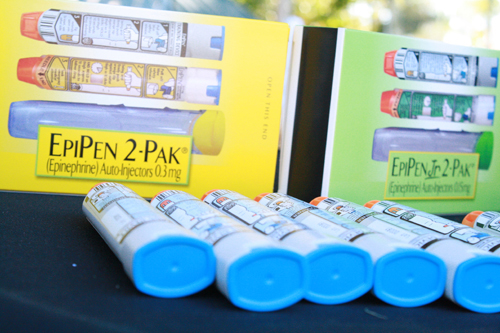This article originally appeared in the Spring 2016 issue of Allergic Living.
Off to a convention and packing special food needs? There’s much to know.

As I exited a luncheon in a hotel ballroom last fall, I saw a fellow attendee being tended to by a swarm of EMTs and convention staff. She was being treated for an anaphylactic reaction to the food she was served. She had informed the meeting planner and hotel of her serious food allergies, yet in this case, that wasn’t enough. Fortunately, after a trip to the hospital, the woman recovered fully. As a meeting planner with my own food allergies and intolerances, it was a chilling experience, as well as the worst case that everyone involved wants to avoid.
Eating safely on the road is always a challenge for people with food allergies or celiac disease. But attending a large business convention takes the challenge to a new level. Training on food allergies and celiac disease is not standardized nor widespread across the industry. Perhaps the schedule will require you to eat most meals in a hotel or convention center. Either will require thorough advance work and follow-up.
While I fully appreciate how hard it is for a food-allergic person to eat at events, I also recognize the complexities faced by meeting planners and chefs. Consider the realities of the conference world today: on average, between 10 and 30 percent of meeting attendees are requesting special meals. Last fall I worked an event that had 683 dietary requests! Some of these requests are made by those following a diet out of preference. But the prevalence of attendees with medically required special needs – from food allergies to celiac disease, diabetes and more – is growing by the year.
When hundreds, if not thousands, of meals are being prepared in a single big kitchen, clear and persistent communication is crucial. As food-allergic and celiac meeting attendees, we need to educate others on the medical necessity of our food needs. By speaking up well in advance, you’re not presenting a problem, you’re making everyone’s job – which includes feeding you safely – much easier.
I’m often asked whose responsibility it is to manage attendee dietary needs. Some say it’s up to the guests with food allergies. Others say the burden lies with meeting planners and caterers. But in the end, I believe the responsibility for ensuring safety at business functions is ours. Collectively.
7 Essentials to a ‘Friendly’ Convention
Here are my suggestions on how to communicate your needs and be safely included at a business conference.
[list icon=”icon: check-square-o” icon_color=”#d81c5c”]
- Share your food allergies during registration. Be aware that just calling ahead to someone on the kitchen’s staff isn’t foolproof nor recommended for conferences; there are simply too many people and moving parts. Fortunately, some online registration systems make it easier to list your needs. If asked if you have any disabilities, type in your allergies or celiac disease. Also add this information when asked about dietary restrictions, and always indicate if you are dealing with life-threatening food allergies.
- Provide an anaphylaxis emergency care or action plan to the meeting host. This information, available on the Foodallergy.org or AAAAI.org websites, spells out your medical condition and clearly explains how to help you in case of an emergency.
- Confirm 2–3 weeks in advance and when you arrive. If the meeting planner does not confirm that your needs will be addressed, call the person to ensure your request was received and how you will be accommodated. If you do not hear back, call the venue directly and ask to speak to the catering services manager (CSM). When you pick up your name badge at the event, ask to speak to the meeting planner to reconfirm the process for getting your safe meals.
- Carry a food allergy chef’s card. Some planners and hotels are implementing meal-ticket systems at their events to help identify attendees with special dietary needs, but a lot do not. A card with your name on it outlining your dietary needs provides clear communication.
- Introduce yourself to the banquet captain. Find the hotel staff in suits along the perimeter of the room and introduce yourself. These are the banquet captains, whom servers report to. Putting a face to a name, along with your chef ’s card, can go a long way toward getting you the correct meal.
- Consider joining the steering committee. Depending on the type of event, one way to safeguard healthful, delicious meals is to help plan the event. Your voice can help change processes and educate.
- Event location matters. Is the event you’re attending on a beach or in a hotel ballroom? Off-site venues provide challenges in meeting last minute requests and changes. Hotels and convention centers, especially those in big cities, are generally better at handling special requests since they have pantries and greater access to a range of ingredients.
[/list]
[box title=”EMPLOYER’S ROLE” box_color=”#d81c5c”] Under the Americans with Disabilities Act Amendments Act of 2008, employers may have a duty of care to ensure employees with food allergies are able to eat at work as well as at events. The ADAAA includes eating and breathing as “major life activities” that should not be restricted. Beyond the legalities, it’s just good corporate policy to ensure that your staff with special needs will be accommodated and fully included as you plan that next big corporate retreat.[/box]




